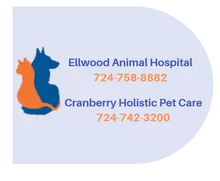With warmer weather upon us, and a wetter spring than usual, read this article for tips on how to keep your pets safe, while enjoying the season.
- Preventing heat stroke:
- It’s never safe to leave pets in a vehicle in summer, even with the windows partially down, as heat stroke can occur in a matter of minutes. A stressed pet (due to passersby, insecurity or separation anxiety) becomes overheated at lower ambient temperatures. And even when pets are good travelers, car temps are just too intense to be safe. According to a Stanford University study, an outdoor temp of 72 degrees causes a car’s internal temperature to climb to 116 degrees within one hour with the windows closed. The bottom line is to leave pets at home or take them out of the car with you when you make stops.
- Pets most at risk for dying as a result heat exposure include older dogs, short faced or brachycephalic breeds of dogs and pets who suffer from a condition called LarPar (laryngeal paralysis), heart disease, tracheal collapse or allergic/asthmatic conditions.
- Playing fetch or retrieving on hot days requires lots of breaks for drinks and rinsing off. Never jog with pets when the temp reaches the upper 70s or higher, especially when the humidity is high.
- If your pet begins panting excessively, remove him from the sun, rinse his pads with cool water, and offer a drink. If your pet vomits or collapses, seek immediate veterinary attention, but do not submerge a pet in an ice bath. Alcohol on the pads is a better way to slowly drop his temperature.
- Water safety, including algal blooms:
- Swimming and boating with pets can be great fun, but be certain to get your pet a good life vest, as even the best swimmers can get tired in the water.
- Assure your pet cannot get access to fishing gear, and when swimming in areas where people fish, stay on the lookout for hooks in the water and on the shore.
- Drinking and contact with water which contains toxic algal blooms is fatal, so prevent pets from swimming in water with a green or blue green scum.
- Learn where the nearest vet office is located, so if there is a hook or other hazardous situation, you can get your pet immediate attention.
- Rabies and Lyme disease prevention:
- Assure pets have excellent and non-toxic tick and flea product preventives.
- Ask your vet about the safest preventives and vaccines to protect against both Lyme disease and rabies and both diseases can be prevented with immunizations.
- Avoid purchasing products on-line, as many preventives are now being made and sold through unscrupulous sources.
- Preventing mold in damp/flooded areas and in homes:
- If your home or yard experienced flooding this spring, perform a thorough cleaning by removing all stored items and scrubbing walls and floors and replacing carpet.
- Be certain to ventilate your home during disinfection, as many sanitizers can cause lulng irritation. Thoroughly rinse cleaners. If repainting or staining is required, remove pets from the home, until all areas have been ventilated for several days.
- “To board or not to board?”, which is better? That is the question.
- Pet owners often debate whether it is better to board a pet, travel with him or have a pet sitter stay in their home with the pets. That answer varies with the pet’s personality, your budget, your destination, and your pet’s health status.
- For pets with medical disorders, like diabetes, paralysis or cancer, consider veterinary supervised boarding.
- Check out public boarding facilities ahead of time and try a day care date to see how your pet copes before committing to a longer stay. Be sure your pet is up to date on vaccines, before leaving him there.
- When traveling with pets, be certain to have all vaccines, paperwork and preventives well in advance. Consider how much time you will be able to spend with your pets and if it won’t be much, it isn’t better to leave your dog in a hotel while you are out sight- seeing or spending days at a giant amusement park.
- Be sure house sitters are trusted family or friends, or licensed and bonded companies before allowing someone unknown to come into your home.
- Yard sprays, fertilizer, herbicides, pesticides, plants and mulch
- Before planting, fertilizing or having your yard sprayed, always get the species of plants, and an MSDS sheet on chemicals, with product names. Ask you vet to review it for safety around pets.
- Keep pets off treated areas, at least until after the next 2 thorough rainfalls.
- Rinse pets feet after all walks to remove pollen and any possible chemicals from neighbor’s yard treatments.
